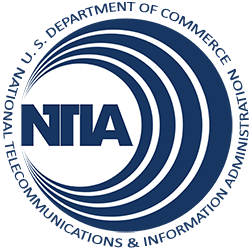Digital Cities Benefit from Broadband Investments
NTIA congratulates the winners of the 2013 Digital Cities awards, which recognize cities for the innovative use of technology to expand access to government services, promote citizen engagement, increase transparency, reduce costs and improve the lives of residents. The Center for Digital Government, a research and advisory firm focused on technology in state and local government, gave out the awards at the National League of Cities annual conference in Seattle last month.
NTIA is particularly pleased to note that a number of winning cities were lauded for projects and activities funded by our Broadband Technology Opportunities Program (BTOP). Over the past four years, the program has invested roughly $4 billion nationwide in network infrastructure, public computer centers and digital literacy training to help close the digital divide and ensure all Americans can benefit from the promise and potential of the Internet.
Boston, which received two separate BTOP grants, took first-place honors in the Digital Cities “large population” category. Boston used one federal grant to install 638 new computers in 54 libraries, community centers and public housing developments to provide Internet access to those who don’t have it at home. The city used the other investment to offer all sorts of training programs at these centers, covering everything from basic Web navigation and multimedia skills to adult education and job search assistance. For more information, go to http://bpcc.bpl.org/
The Digital Cities survey specifically recognized a BTOP-funded program in Boston called Technology Goes Home, which provides digital literacy training, subsidized netbooks and low-cost Internet access to low-income middle and high school students. The program is operating in 70 schools and is reaching entire families. Technology Goes Home also offers digital literacy training in nine languages - including Spanish, Vietnamese and Somali - at 50 community sites, including dozens of BTOP-funded computer labs. For more information, go to http://www.techgoeshome.org/
Another big city that made the Digital Cities list was Chicago. Chicago used BTOP funds to install or upgrade more than 3,000 computers and offer digital literacy training at over 150 locations, including libraries, community colleges, public housing sites, workforce centers and senior centers. The grant also supported the development of Connect Chicago, a program that links staff at these centers so they can share knowledge and resources. For more information, go to http://weconnectchicago.org/
In addition, Chicago used a separate BTOP award to fund its Smart Communities program, which provides Internet training and computer equipment to local residents and small businesses in five low- to moderate-income neighborhoods. The program works with a community development organization called Local Initiatives Support Corporation/Chicago and neighborhood non-profits to integrate broadband into daily life. It added computer workstations at four local Business Resource Centers and created local Business Resource Networks, which provide free workshops, technical assistance, computer equipment, software and broadband to help businesses adopt technology and get online. The program also established public computer centers called Family Net Centers, which integrate digital literacy training with employment and financial counseling services at existing Centers for Working Families. And it created community Web portals, supported digital-media after school programs and funded “digital youth spaces” at local libraries. For more information, go to http://www.smartcommunitieschicago.org/index.html
Philadelphia, which received two separate BTOP awards to support its Freedom Rings Partnership, was also near the top of the Digital Cities list in the large population category. The citywide partnership – a coalition of more than a dozen city agencies, non-profits, grass-roots organizations and universities – installed more than 800 new workstations in homeless shelters, libraries, housing developments and other public buildings in low-income neighborhoods. Altogether, the program established 79 computer centers, called KEYSPOTS. In addition, the coalition offers computer classes and digital literacy training at these centers to local youth, unemployed, people with disabilities and low-income residents. For more information, go to https://www.phillykeyspots.org/
Other cities on the 2013 Digital Cities list that benefited from BTOP funding include Los Angeles; Seattle; Austin, Texas; Winston-Salem, N.C., and Lowell, Mass. We’re glad the NTIA investments helped make these successes possible.
The Digital Cities awards program is coordinated by the Center for Digital Government, a division of e.Republic, which also publishes Government Technology magazine.
